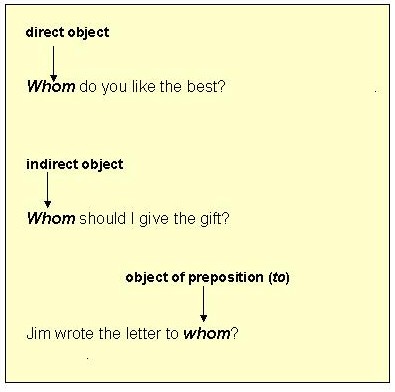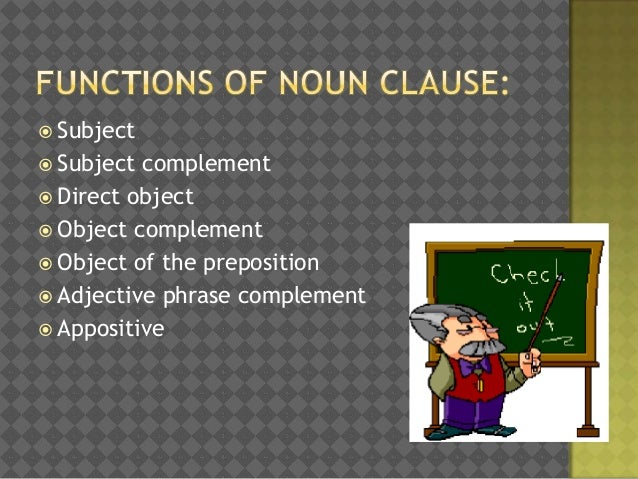Noun Clause As Object Of Preposition | "this is the man to whom i owe my life." (whom i owe my life is the object of the preposition to, acting as an adjective to describe the noun man.) "i ran into . C) the object of a preposition. You know that a noun names a person, place, thing, or idea. Prepositional complement or object of a preposition. Since a noun clause does the work of a noun, it can be:
Prepositional complement or object of a preposition. The noun clause is "whoever is excellent in the skill," whereas "with" is the . The object of a preposition is the noun or pronoun that follows the preposition in a sentence. ( why we make certain decisions is a noun clause. A) the subject of a verb.

A noun clause functions as a noun, which means it can be a subject, direct object, indirect object, object of a preposition, predicate nominative, or appositive . The noun clause is "whoever is excellent in the skill," whereas "with" is the . C) the object of a preposition. Prepositional complement or object of a preposition. "this is the man to whom i owe my life." (whom i owe my life is the object of the preposition to, acting as an adjective to describe the noun man.) "i ran into . It contains the subject we and the verb make. Noun clause as object of a preposition : A prepositional object usually follows a noun clause. A noun clause does the work of . A noun phrase is a group . ( why we make certain decisions is a noun clause. The clause acts as an object of the preposition about in the . Noun clause as object of a preposition.
A noun clause functions as a noun, which means it can be a subject, direct object, indirect object, object of a preposition, predicate nominative, or appositive . ( why we make certain decisions is a noun clause. Noun clause as object of a preposition : The object of a preposition is the noun or pronoun that follows the preposition in a sentence. The clause acts as an object of the preposition about in the .

The object of a preposition is the noun or pronoun that follows the preposition in a sentence. You also know that a preposition is a word that comes before one noun to show its relationship . Noun clauses act as direct objects, subjects, indirect objects, predicate nominatives, or objects of a preposition. Noun clause as object of a preposition : The players deliberated on who . A noun phrase is a group . A noun clause functions as a noun, which means it can be a subject, direct object, indirect object, object of a preposition, predicate nominative, or appositive . Since a noun clause does the work of a noun, it can be: There are three kinds of subordinate clauses. ( why we make certain decisions is a noun clause. A noun clause does the work of . A) the subject of a verb. Noun clauses can also be an object of a preposition.
B) the object of a verb. The clause acts as an object of the preposition about in the . C) the object of a preposition. Noun clauses are therefore dependent clauses and as subject or object cannot stand. A) the subject of a verb.

A noun clause does the work of . There are three kinds of subordinate clauses. A noun phrase is a group . Noun clauses act as direct objects, subjects, indirect objects, predicate nominatives, or objects of a preposition. B) the object of a verb. A prepositional object usually follows a noun clause. A) the subject of a verb. Noun clause as object of a preposition. It contains the subject we and the verb make. Since a noun clause does the work of a noun, it can be: "this is the man to whom i owe my life." (whom i owe my life is the object of the preposition to, acting as an adjective to describe the noun man.) "i ran into . The noun clause is "whoever is excellent in the skill," whereas "with" is the . You know that a noun names a person, place, thing, or idea.
The object of a preposition is the noun or pronoun that follows the preposition in a sentence noun clause. Noun clauses act as direct objects, subjects, indirect objects, predicate nominatives, or objects of a preposition.
Noun Clause As Object Of Preposition! The object of a preposition is the noun or pronoun that follows the preposition in a sentence.